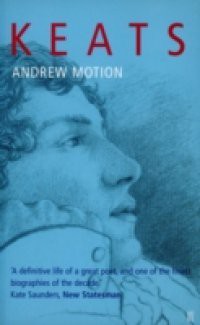Keatsis the first major biography of this tragic hero of romanticism for some thirty years, and it differs from its predecessors in important respects. The outline of the story is well known - has become, in fact, the stuff of legend: the archetypal life of the tortured genius, critically spurned and dying young.What Andrew Motion brings to bear on the subject is a deep understanding of how Keats fitted into the intellectual and political life of his time. Important friendships with such anti-establishment figures as William Hazlitt and Leigh Hunt are given their full due, and the closeness of his own spirit, as expressed in his poems, to the ferment all around is made clear. Many significant new facts about Keats's schooldays and medical training, in particular, enrich the picture. Keats emerges as a more political figure than he is usually portrayed, but his personal sufferings, too, come into closer focus. Most importantly, Andrew Motion - himself a distinguished poet and former poet laureate - demonstrates how the poems continue to exert their power.'A definitive life of a great poet, and one of the finest biographies of the decade.'New Statesman

